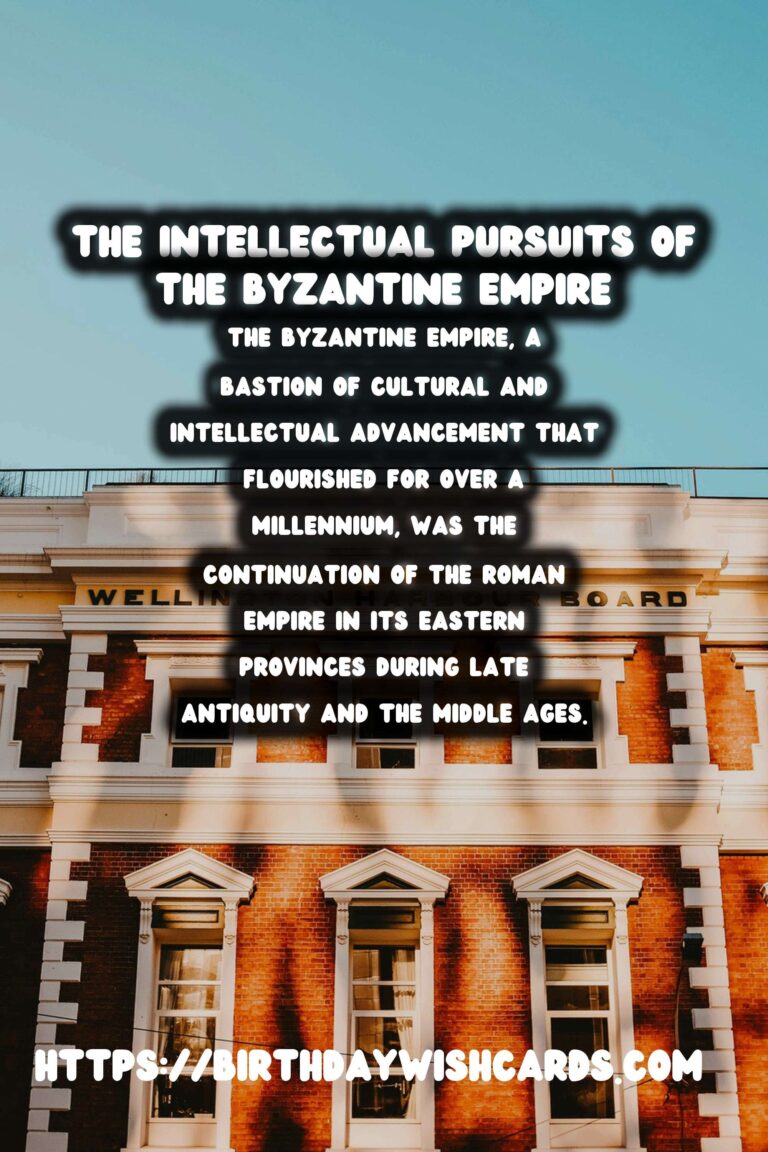
The Byzantine Empire, a bastion of cultural and intellectual advancement that flourished for over a millennium, was the continuation of the Roman Empire in its eastern provinces during Late Antiquity and the Middle Ages. Its influence on literature is profound and far-reaching, laying the groundwork for literary traditions that continue to thrive today.
An Empire of Intellectual Pursuits
The Byzantine Empire was a cradle of scholarly activity. Its intellectual environment allowed Greek and Roman texts to be preserved, interpreted, and expanded upon. The preservation of such classical works was mainly due to Byzantine scholars who meticulously copied manuscripts, thus safeguarding the knowledge through the ages.
Preservation and Transmission of Classical Knowledge
One of the primary contributions from the Byzantines to world literature was the preservation of Greek and Roman texts, which might otherwise have been lost forever. These text included works of Homer, Plato, Aristotle, and other literary greats, which were meticulously copied and commented on by Byzantine scholars. This paved the way for the Renaissance in Western Europe when these manuscripts were rediscovered.
Byzantine Genres and Literary Works
Byzantine literature itself was diverse and innovative, encompassing hagiographies, epic poetry, theological treatises, and government documents. The genre of hagiography, or the lives of saints, was particularly popular. These works not only provided spiritual inspiration but also served as historical documents offering insights into Byzantine society and culture.
Christianity’s Role in Byzantine Literature
With the centralization of Christianity, much of the Byzantine literary output was focused on theological matters. The Church significantly influenced literary practices, setting theological discourse within a framework that was accessible to the lay audience through sermons and hagiographies. This cemented the role of written text as an essential medium for religious instruction and dissemination of Christian doctrine.
Byzantine Historiography and Chronicles
The Byzantines were also prolific historians, crafting detailed chronicles that recorded not only the empire’s own history but also broader aspects of the world known to them. These works showed a mix of accuracy and artistic narrative, presenting both factual and legendary events, which have been invaluable to modern historians looking to understand Byzantine views of world history.
The Fall of Constantinople and the Spread of Knowledge
The fall of Constantinople in 1453 marked the end of the Byzantine Empire. However, this event led to an important cultural dissemination. Many Byzantine scholars fled to the West, bringing with them precious manuscripts and their deep knowledge of Greek and Roman literature, thus fuelling the intellectual growth of the Renaissance.
Legacy of the Byzantine Literary Tradition
The legacy of Byzantine literature is evident in the way it bridged the ancient world with the modern. Its impact can be seen in today’s religious, educational, and cultural institutions. By maintaining and expanding upon classical and Christian texts, Byzantine literature played a pivotal role in shaping the literary heritage of Europe and beyond.
Conclusion
In conclusion, the Byzantine Empire’s contributions to literature extended beyond their own historical timeline, embedding themselves in the global literary canon. Through the diligent preservation and creation of texts, the Byzantines ensured that invaluable literary treasures would be passed down through generations, enriching the world’s cultural and intellectual legacy.
The Byzantine Empire, a bastion of cultural and intellectual advancement that flourished for over a millennium, was the continuation of the Roman Empire in its eastern provinces during Late Antiquity and the Middle Ages. By maintaining and expanding upon classical and Christian texts, Byzantine literature played a pivotal role in shaping the literary heritage of Europe and beyond. 
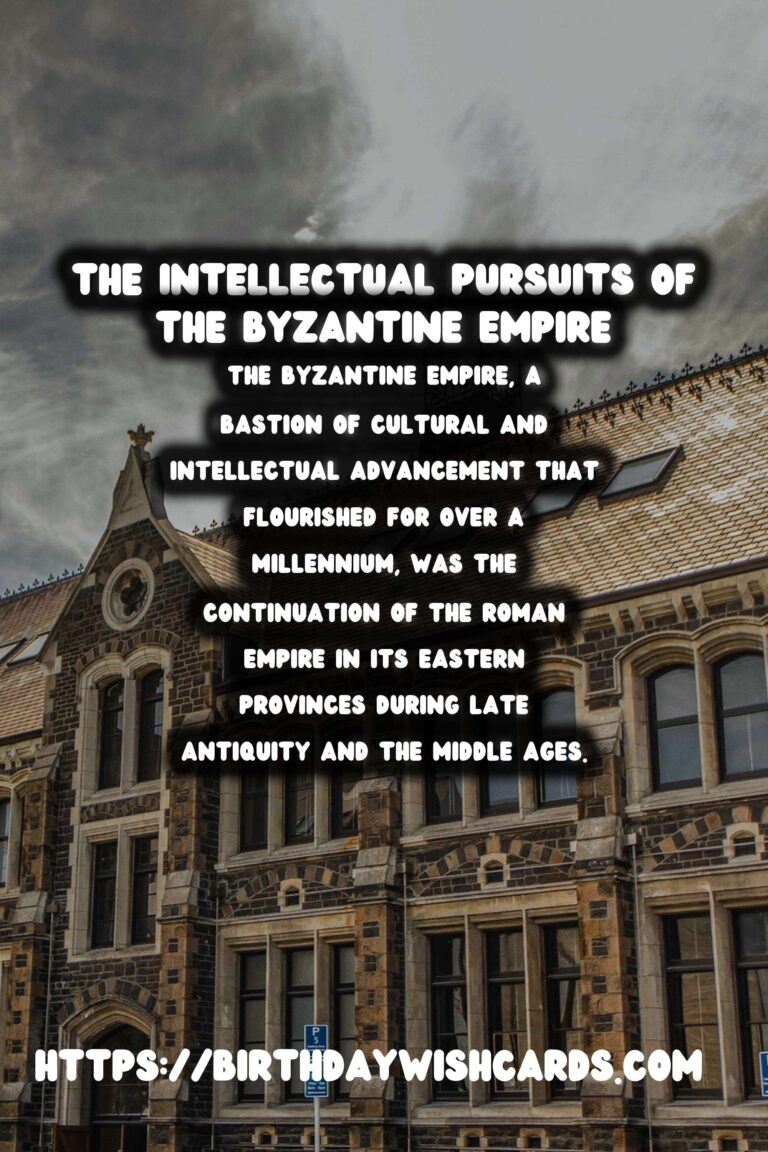
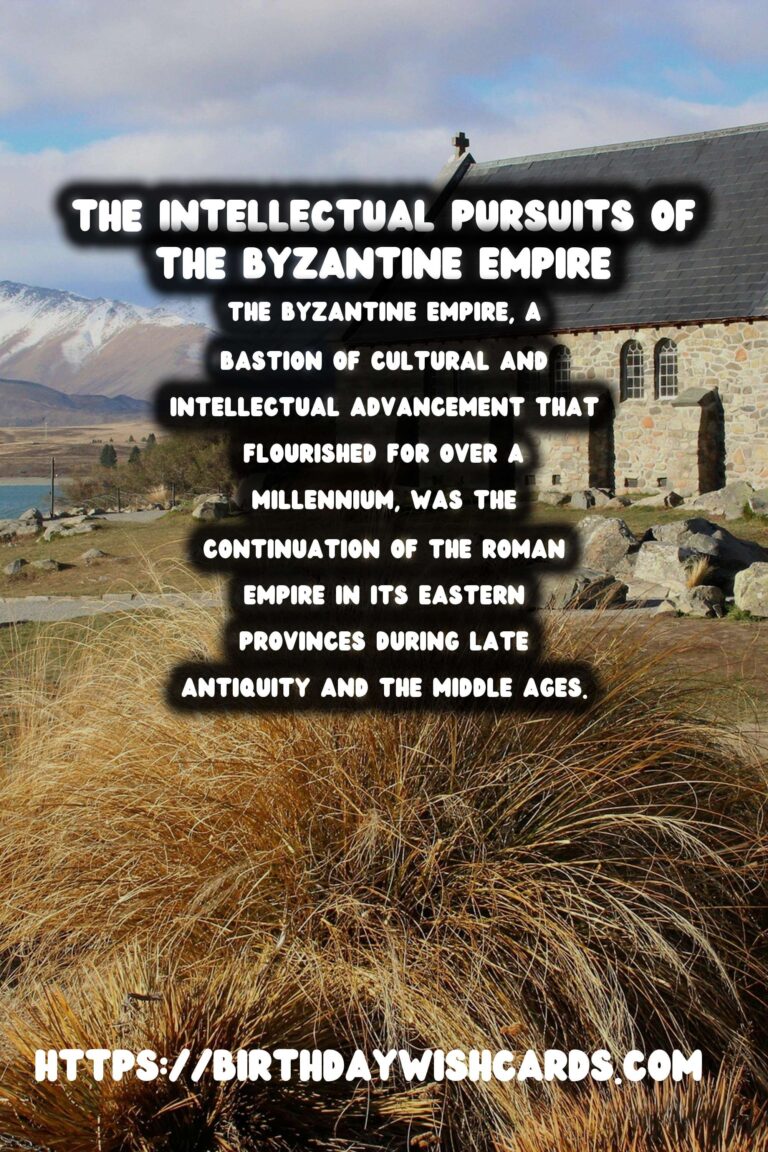
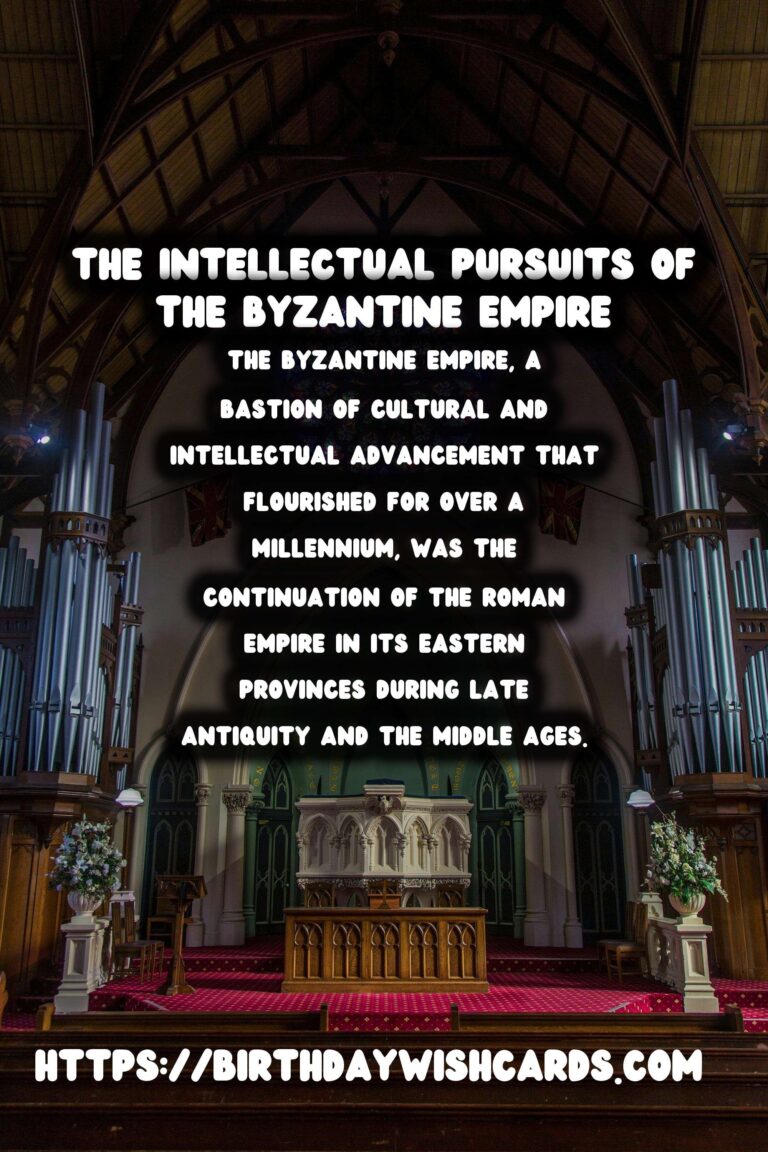
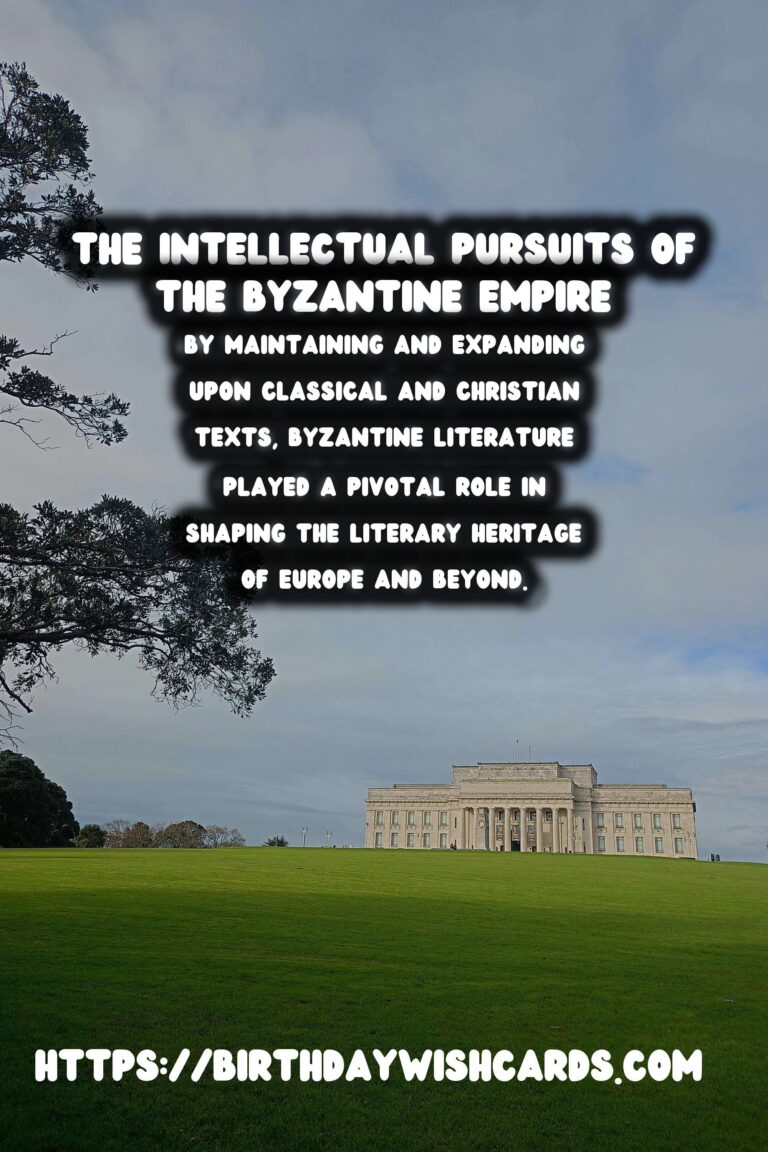
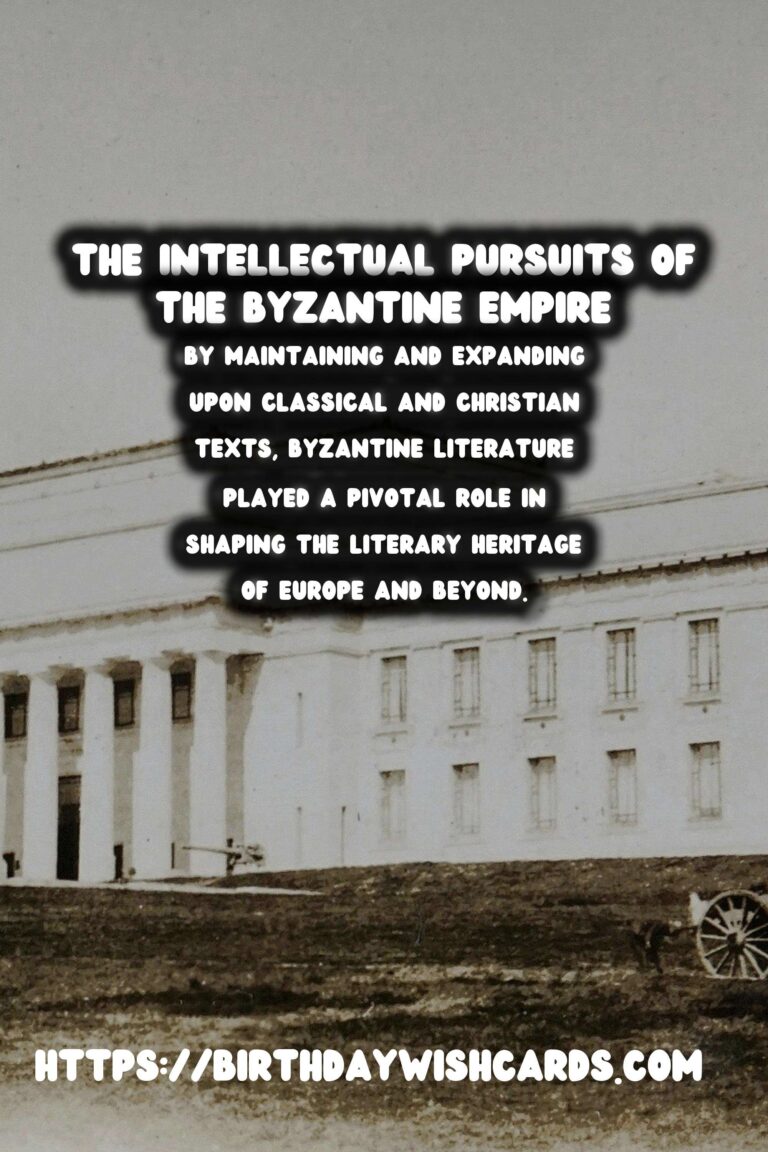
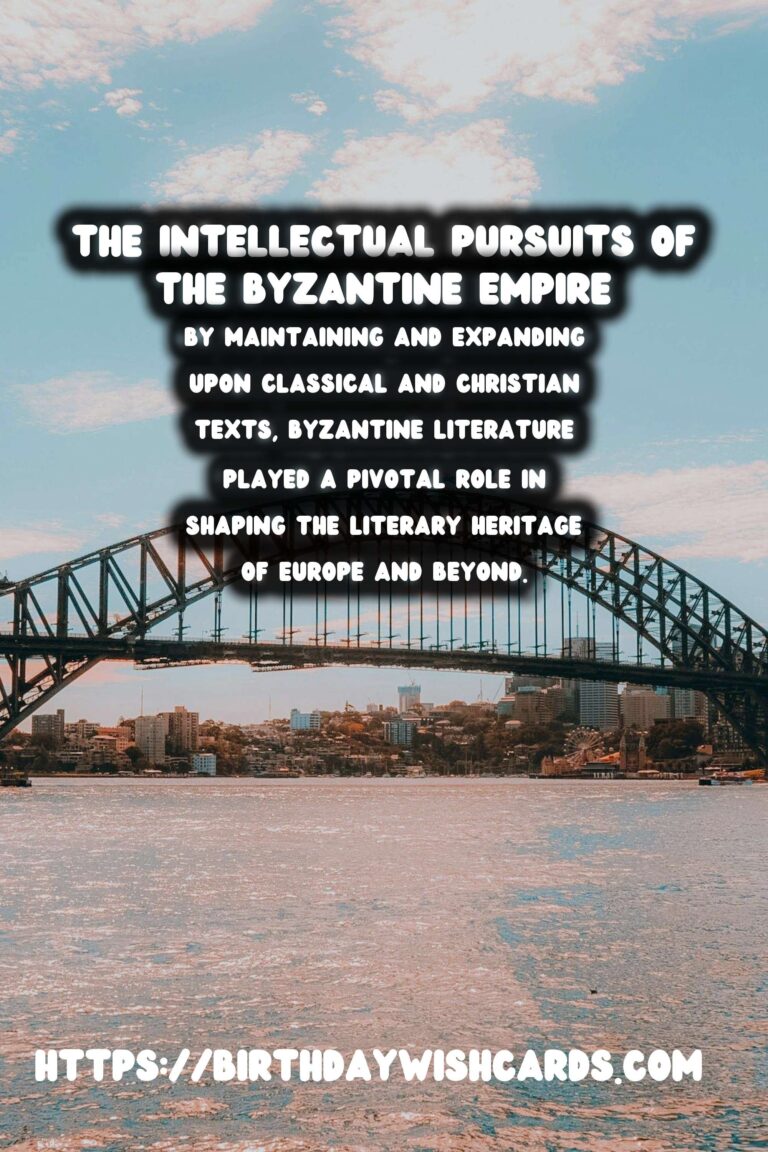
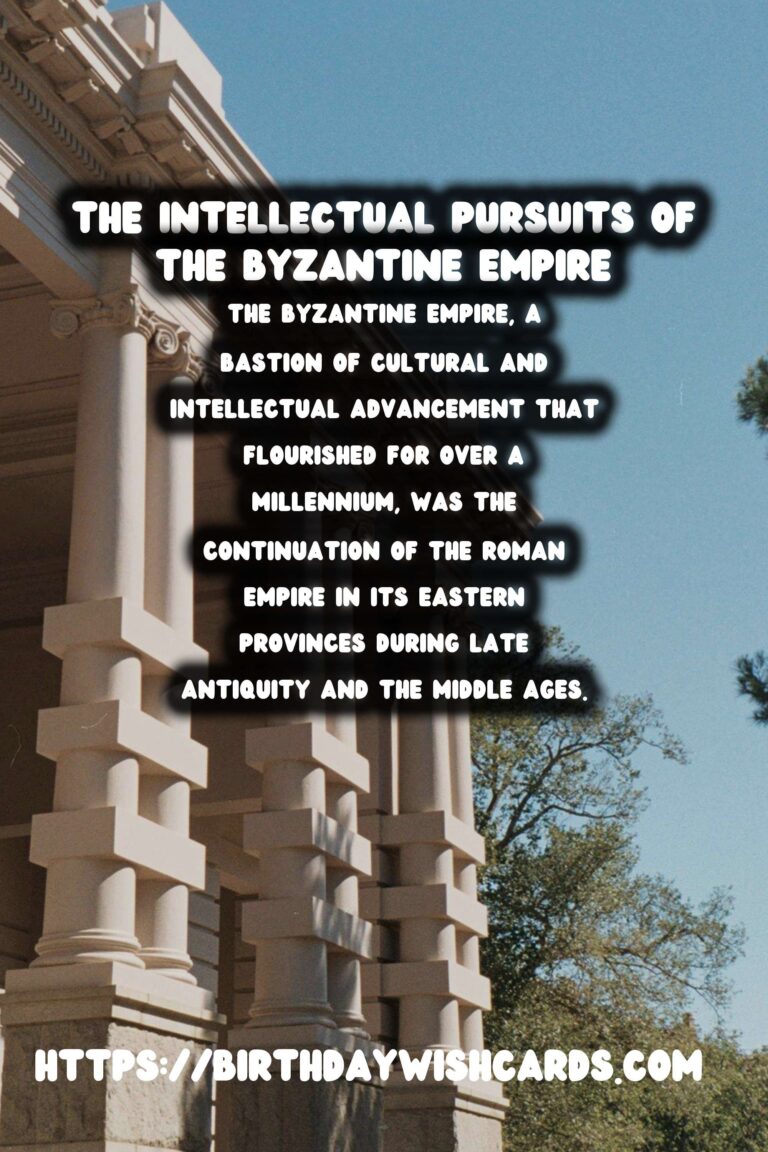
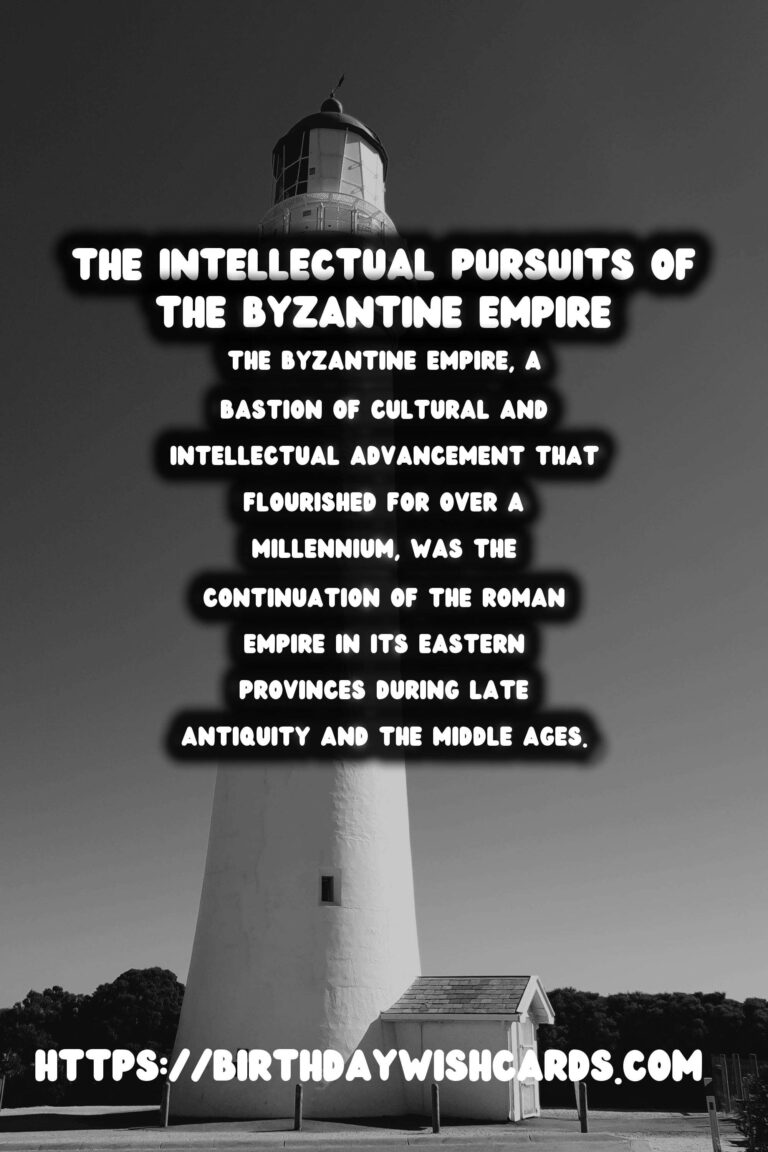
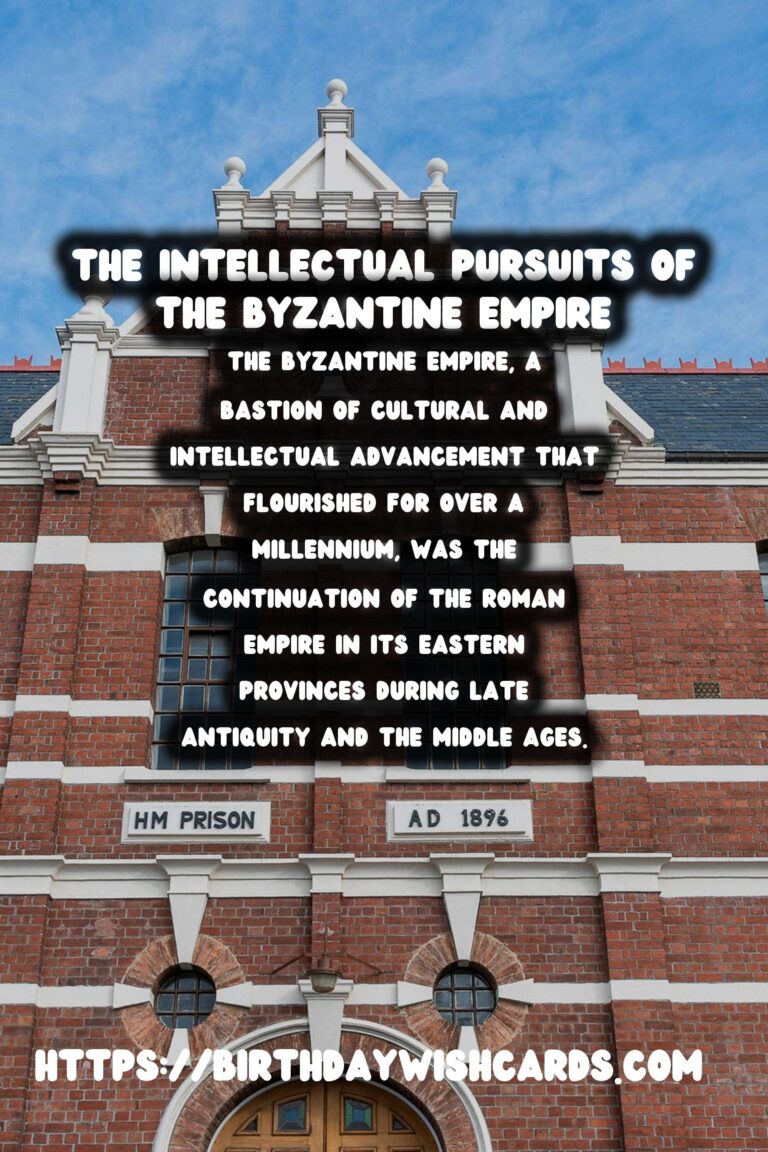
#ByzantineLiterature #CulturalLegacy




